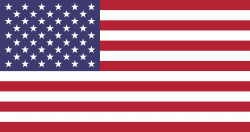Evangeline Parish (Evangeline Parish)
Evangeline Parish (Paroisse d'Évangéline) is a parish located in the U.S. state of Louisiana. As of the 2020 census, the population was 32,350. The parish seat is Ville Platte.
The parish was created out of lands formerly belonging to St. Landry Parish in 1910. The majority of the area was originally settled by French Canadian colonists and former colonial marines (coureurs de bois) from such outposts as Fort Toulouse and Fort Kaskaskia and later included 19th-century French-speaking soldiers and immigrant families.
The early generations were born in colonial French colonies, which included the enormous Louisiana territory ('Upper and Lower' Louisiana) known as "la Nouvelle France", and later were born under Spanish rule.
Many people of Evangeline are primarily of French, English, and Spanish descent from Louisiana's colonial period. Examples of the French family names are Fontenot, Brignac, Ardoin, Bordelon, Vidrine, Courville, Gaspard, LaFleur, Chataignier, Dupre, Berza, Manuel, Ratelle, Fuselier, Landreneau, Andrepont, Guillory, Soileau, LeBas, and Gobert, among others. People of Spanish Canary Islands heritage (Isleños) can be observed to have settled in the Parish as well, bringing names like Aguillard, Casaneuva, De Soto, Ortego, Rozas, and Segura. Many English Americans as colonists came from the Eastern United States to settle in the newly purchased Louisiana Territory often married into Acadian families. Some prominent English surnames include Chapman, Kershaw, Young, Reed, Langley, Tate and Buller.
A few Acadians such as François Pitre and his wife settled the area between Evangeline and St. Landry parishes, preferring the rich pre-American and pre-Civil War era Cajun planter's lifestyle over that of the humble and isolated existence of their Acadiana cousins.
The parish was named Evangeline in honor of Henry Wadsworth Longfellow's narrative poem, Evangeline. It was from this poem that founding father Paulin Fontenot was to propose the namesake of "Evangeline" for this parish, allegedly foreseeing an emerging American tourism centered upon the Acadian saga. (See Ville Platte Gazette, Sept. 2010) In 19th-century American literature, she would gain popularity through Hollywood's interest, and thus began the embryonic 'Acadian-based' tourism which sprang up in St. Martinville. Evangeline Parish is mentioned in the Randy Newman song "Louisiana 1927", in which he described the Great Mississippi Flood which covered it with six feet of water.
Ville Platte, Louisiana, the seat of Evangeline Parish, was itself so named by one of Napoleon Bonaparte's former soldiers, Adjutant Major Marcellin Garand (1781-1852), of Savoy, France. (See Napoleon's Soldiers In America, by Simone de la Souchere-Delery, 1999).
The parish was created out of lands formerly belonging to St. Landry Parish in 1910. The majority of the area was originally settled by French Canadian colonists and former colonial marines (coureurs de bois) from such outposts as Fort Toulouse and Fort Kaskaskia and later included 19th-century French-speaking soldiers and immigrant families.
The early generations were born in colonial French colonies, which included the enormous Louisiana territory ('Upper and Lower' Louisiana) known as "la Nouvelle France", and later were born under Spanish rule.
Many people of Evangeline are primarily of French, English, and Spanish descent from Louisiana's colonial period. Examples of the French family names are Fontenot, Brignac, Ardoin, Bordelon, Vidrine, Courville, Gaspard, LaFleur, Chataignier, Dupre, Berza, Manuel, Ratelle, Fuselier, Landreneau, Andrepont, Guillory, Soileau, LeBas, and Gobert, among others. People of Spanish Canary Islands heritage (Isleños) can be observed to have settled in the Parish as well, bringing names like Aguillard, Casaneuva, De Soto, Ortego, Rozas, and Segura. Many English Americans as colonists came from the Eastern United States to settle in the newly purchased Louisiana Territory often married into Acadian families. Some prominent English surnames include Chapman, Kershaw, Young, Reed, Langley, Tate and Buller.
A few Acadians such as François Pitre and his wife settled the area between Evangeline and St. Landry parishes, preferring the rich pre-American and pre-Civil War era Cajun planter's lifestyle over that of the humble and isolated existence of their Acadiana cousins.
The parish was named Evangeline in honor of Henry Wadsworth Longfellow's narrative poem, Evangeline. It was from this poem that founding father Paulin Fontenot was to propose the namesake of "Evangeline" for this parish, allegedly foreseeing an emerging American tourism centered upon the Acadian saga. (See Ville Platte Gazette, Sept. 2010) In 19th-century American literature, she would gain popularity through Hollywood's interest, and thus began the embryonic 'Acadian-based' tourism which sprang up in St. Martinville. Evangeline Parish is mentioned in the Randy Newman song "Louisiana 1927", in which he described the Great Mississippi Flood which covered it with six feet of water.
Ville Platte, Louisiana, the seat of Evangeline Parish, was itself so named by one of Napoleon Bonaparte's former soldiers, Adjutant Major Marcellin Garand (1781-1852), of Savoy, France. (See Napoleon's Soldiers In America, by Simone de la Souchere-Delery, 1999).
Map - Evangeline Parish (Evangeline Parish)
Map
Country - United_States
 |
 |
| Flag of the United States | |
Indigenous peoples have inhabited the Americas for thousands of years. Beginning in 1607, British colonization led to the establishment of the Thirteen Colonies in what is now the Eastern United States. They quarreled with the British Crown over taxation and political representation, leading to the American Revolution and proceeding Revolutionary War. The United States declared independence on July 4, 1776, becoming the first nation-state founded on Enlightenment principles of unalienable natural rights, consent of the governed, and liberal democracy. The country began expanding across North America, spanning the continent by 1848. Sectional division surrounding slavery in the Southern United States led to the secession of the Confederate States of America, which fought the remaining states of the Union during the American Civil War (1861–1865). With the Union's victory and preservation, slavery was abolished nationally by the Thirteenth Amendment.
Currency / Language
| ISO | Currency | Symbol | Significant figures |
|---|---|---|---|
| USD | United States dollar | $ | 2 |
| ISO | Language |
|---|---|
| EN | English language |
| FR | French language |
| ES | Spanish language |















